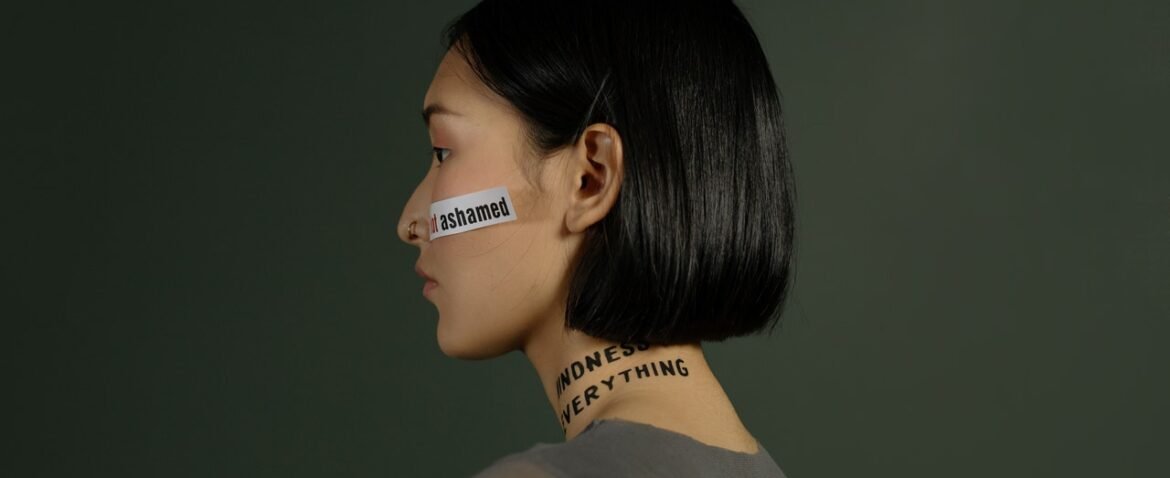Healing Sexual Trauma and Shame
Healing Sexual Trauma: How turning a blind eye to sexual abuse can lead to shame and self-abandonment I often work with people on healing sexual trauma. However, it was a surprise to me when I realised recently, how much of my own sexual trauma was still unprocessed. As it is for many people, New Year is always a reflective time for me. Thinking about the future can give us a new perspective on what we want to let go of. As a therapist, I’m no stranger to doing “the work”. But it’s no easier to confront our demons than for anyone else. Over the last few years, the conversation around sexual abuse and consent has been changing. Thankfully, and long overdue! This has led to a vast awakening of people who have unconsciously been carrying the shame of historical abuse. These may have been perceived as early sexual encounters. Like many women, men and people of all genders who have experienced these kinds of violations, I never spoke about them. Believing I had come to terms, I felt it was better to let it go and just move on. Silence Around Sexual Abuse I quietly diminished my experiences, and even convinced myself that they were my choice. Even as a therapist, I told myself that my experiences weren’t “as bad” as other people’s. Telling myself to not be so dramatic as there were many others who had experienced much worse. This may be true, but that doesn’t change the fact that what happened to me was not cool or right in any way. For me, it was easier to blame myself all those years. Rather than believe that the people I’d trusted could do such things. Maybe this was a way to feel safe in the world. Whatever the reason, shame played a big part in my silence. As it does for many others in similar situations to mine. Photo by Kat Smith from Pexels Sexual Trauma and Shame So why don’t people speak up? There can be many reasons why a person decides not to talk about sexual trauma. Some people can go through their entire lives without mentioning a word about it. Most often, this is down to shame and fear that people will judge or not believe them. But why should someone feel ashamed of something bad that happened to them? For me, it’s taken over 30 years to understand this, and to even begin to fully confront the issue. My own experiences date back to early childhood. Memories of being flashed and coerced into inappropriate touching while in the bath, remain a murky inkblot on my subconscious. Having little understanding of what those events mean as a child, it’s only later on that we question such memories. But we can also begin questioning the validity of them, being buried so deep in our past. Other worrying questions around family connections and trust may surface along with these memories. The temptation to leave them buried can seem a much easier way to deal with them. For me, it was a combination of events leading into my early adulthood that resulted in my pattern of silence and self-blame. The Passing Down of Family Trauma Growing up in a household filled with family trauma and addiction, unsurprisingly I felt the need to grow up fast. When my father committed suicide, our mum (mother to 4 children), coped as best she could. I can only imagine the toll this must have taken on her, as she battled with her own childhood trauma and addictions. To say she was distracted would be an understatement. Her inability to face and begin healing sexual trauma in her own childhood, forced her into a state of denial. She was unable to see the dangers around her own children. We had moved into a squat in London, surrounded by men in their mid 20s to 40s in the grip of a drug fuelled existence. As you can imagine, there were many times when our safety was compromised. Drowning in a soup of depression, anger, grief and substance abuse, my mum was blind to the fact that her boyfriend at the time was grooming me at age 13. She even allowed him to take me alone back to Wales (where we’d lived for 3 years and where she’d met him), while he attended a court case. Sounds like a trustworthy guy eh! I remember feeling so grown up, believing I was in a secret relationship with this man. I’d been so angry at my mum. Partly for my dad’s death (not that I blame her anymore of course), but also for abandoning us to her sadness and addictions. Armed with this anger, I justified the behaviour as though it was my choice. Luckily, he didn’t try to have sex with me. But he did coerce me into other sexual behaviour which was far beyond any expectations of a 13-year-old girl. Especially from a man well into his 30s. Holding onto Shame Carrying the shame of cheating on my mum in this way, it was years before I understood what had actually happened. By the end of my 13th year on this planet, I had been forced to perform oral sex by a man in his mid to late 20s, and had several fully grown men fondle me unwantedly. These kinds of experiences continued into my late teens, including being physically forced by older men to touch them inappropriately. Some of these people I had regarded as being like family at the time. Photo by RODNAE Productions from Pexels How Sexual Trauma Can Lead to Poor Boundary Control Many people who have experienced sexual violation in their early years, find themselves engaging in risky sexual behaviour as adults. Several studies listed in the Journal of Interpersonal Violence, highlight some of the ways early sexual assault can result in RSB. Some people become hypersexualised or turn to alcohol and/or drugs. Many end up in abusive or

